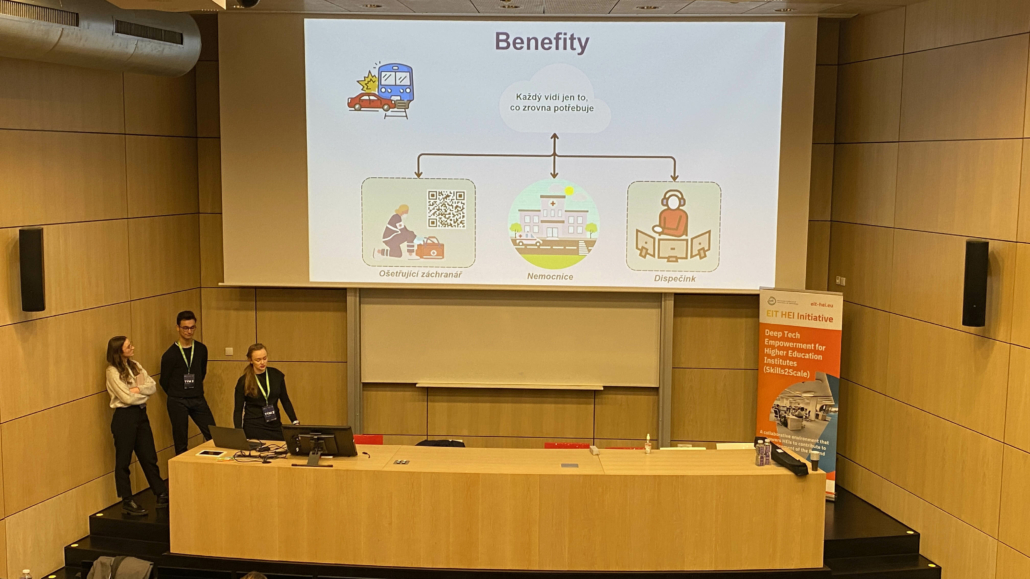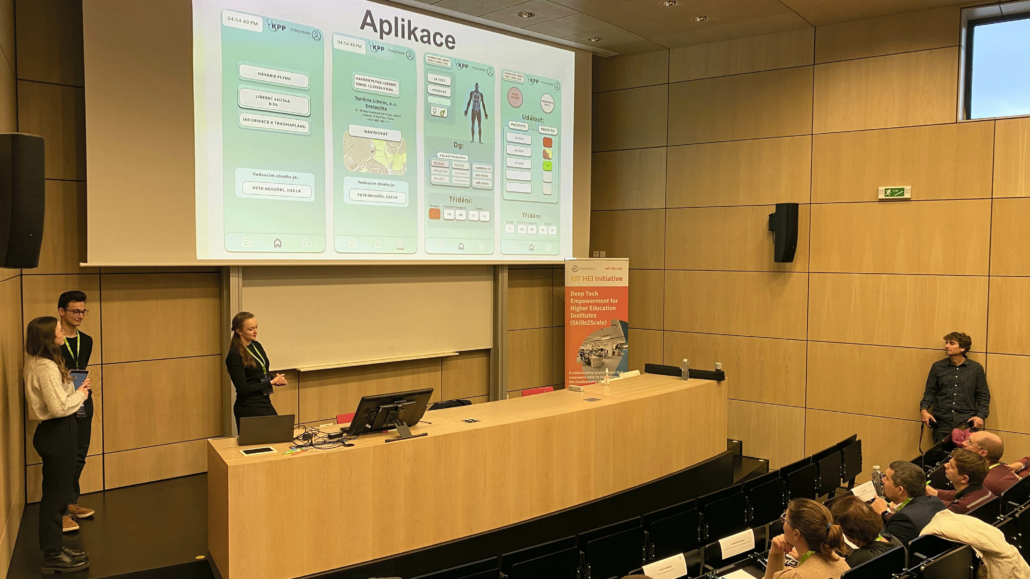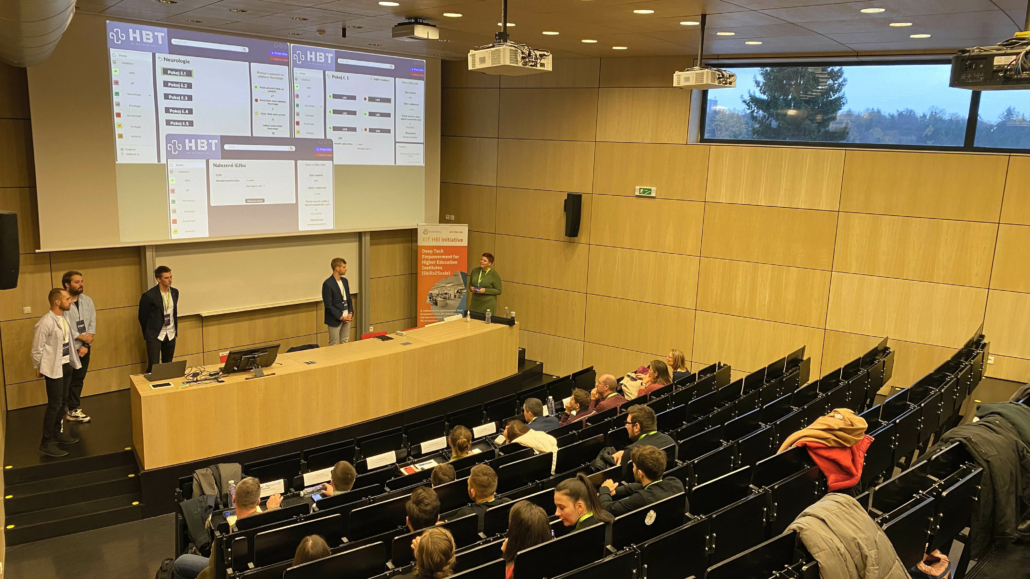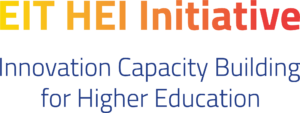Final Pitch Deck@TUL: Students from three faculties join forces to tackle 5G/digital health challenges
Author: Jana Simanova
“Entrepreneurship is a key skill for success in the job market or for developing your own business. Every modern university should develop it for its students. However, such a skill cannot simply be developed in the classroom,” explains Jana Simanová, Vice Dean of Faculty of Economics at TUL. “That is why this winter semester we organised a unique educational experiment at TUL, which brought together students from three faculties – the Faculty of Economics, the Faculty of Mechatronics and the Faculty of Health Studies – to solve interesting projects.”


“We started on 6th October with an Ideathon. During the three-hour event, representatives from T-Mobile, Linet and the Regional Hospital in Liberec presented their innovative challenges to thirty students from the Faculty of Mechatronics, the Faculty of Health Studies and the Faculty of Economics. During the Ideathon, the students questioned the challengers and expert mentors about the details of the problems and known solutions. In the end, they formed 4 teams with representatives from all three faculties and defined the goals of their joint projects and initial proposals for innovative solutions,” says Jana Vitvarová, author of the concept of the 5G Interdisciplinary Innovation Lab at TUL and lecturer of students from the Faculty of Health Sciences.
Over the next two months, the students worked on the solutions in their faculty courses and developed them according to their expertise – from a technical, economic and future user point of view. The work included visits to startup companies or paramedic services, consultations with expert mentors and a one-day hackathon for mechatronics students to come up with a technical concept.
“The biggest challenge for the students was communication within the teams. They didn’t know each other before the course started, they study different disciplines with different timetables and they had to synchronise their work. I think it was a useful lesson for everyone that it is important to respect other professionals and try to understand the perspectives of other disciplines,” says Lenka Koskova Triskova, a lecturer of the students from the Smart Technologies specialisation at Faculty of Mechatronics.The work of the interdisciplinary teams culminated on 23rd November. In front of a panel of experts, the students presented their solution and business plan.The panel of experts included representatives from innovative technology companies and experts in the field of digitalisation and healthcare. Specifically, the teams tackled issues such as the localisation and online tracking of hospital equipment, communication and messaging between paramedic teams and hospitals, and the monitoring of elderly people with neurodegenerative diseases.
The winner of the first year of the 5G Interdisciplinary Innovation Lab was a team of students who designed a new solution for the paramedic team to share information about patients and the course of interventions between dispatch, hospitals and field teams in dealing with mass disasters. “The most interesting part of the whole work for us was that we were in close contact with paramedics and professional mentors. We knew that we were working to solve a real problem and that we could really make a difference,” says Filip Tichacek, a student at the Faculty of Mechatronics and a member of the winning team. His colleague Antonin Sahula adds: “I told myself that I would study some economics because it is important and as a technician I need to be able to get along with economists if I want to run a company one day. So far I haven’t been interested in it at all”.


“For us, the organisers, the most important thing now is the retrospective and the feedback from the students, so that we can continue to improve in preparing similar forms of teaching,” says Jana Vitvarová, summing up her impressions on behalf of the organisers. “We definitely want to repeat and develop the concept. We all enjoyed connecting students from different faculties – the students and us. For example, the area of smart solutions for cities and a whole range of other ideas are on offer”.
“The whole event could not have taken place without the active participation of the practitioner challengers and expert mentors. We are very grateful to Vit Karvay, Technical Director of the global company LINET, Head of the Science and Research Centre of the Regional Hospital in Liberec Vendula Macháčková, Lukáš Abazid from T-Mobile, Jakub Recek, paramedic, Lenka Horakova, geriatric specialist and Pavel Hübner from Hardwario for their helpful suggestions and excellent cooperation.” concludes Jana Simanová, Vice Dean for Conception and Development of the EF TUL and adding that she hopes the students will continue to develop and improve their projects. A great opportunity is, for example, the participation in the EIT Health Open Innovation Call.


